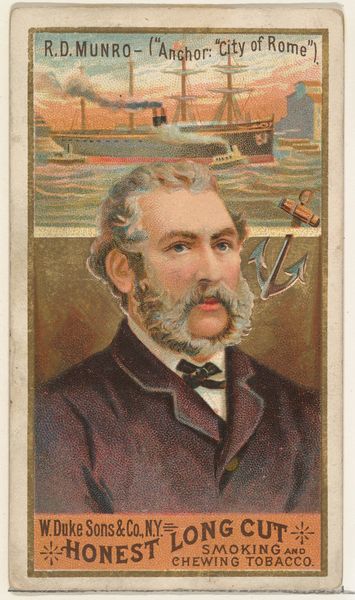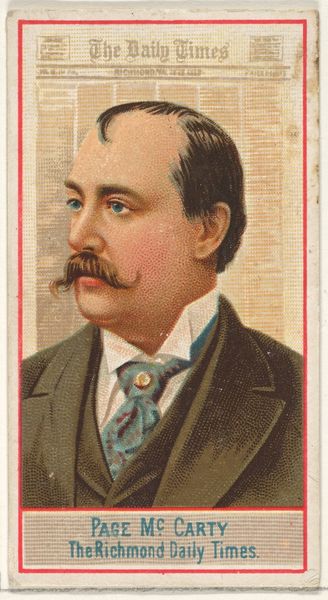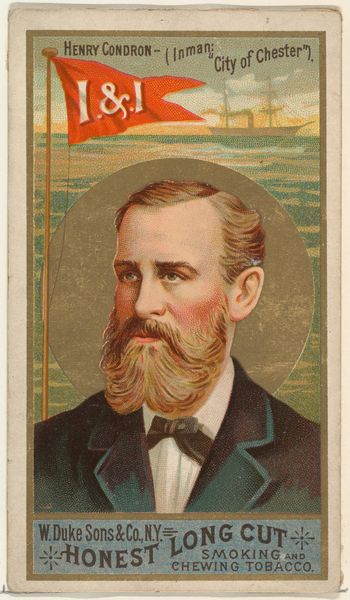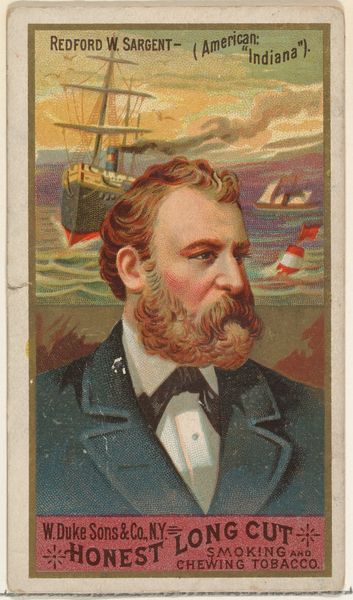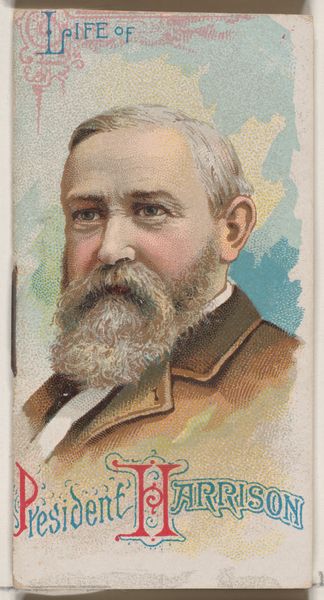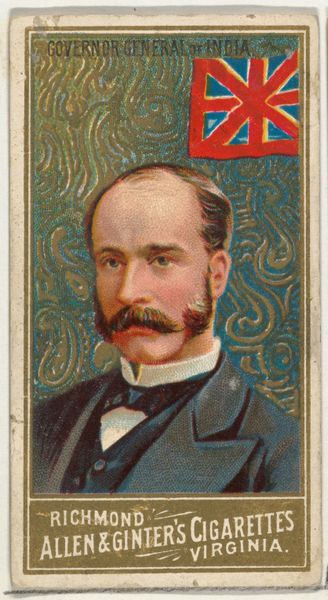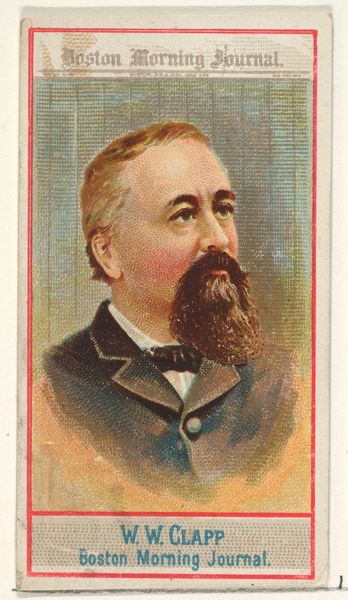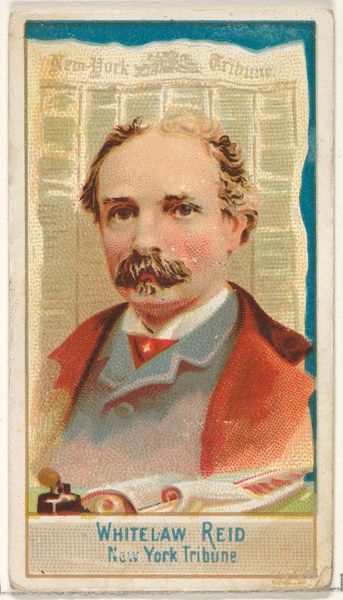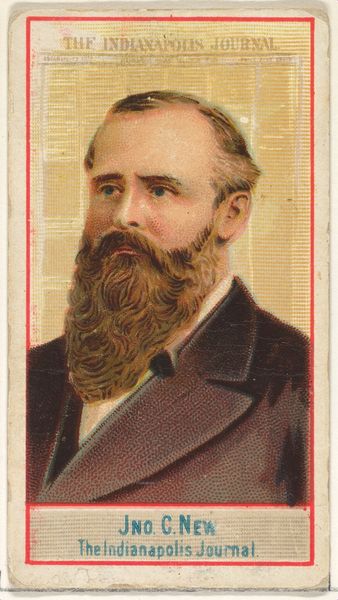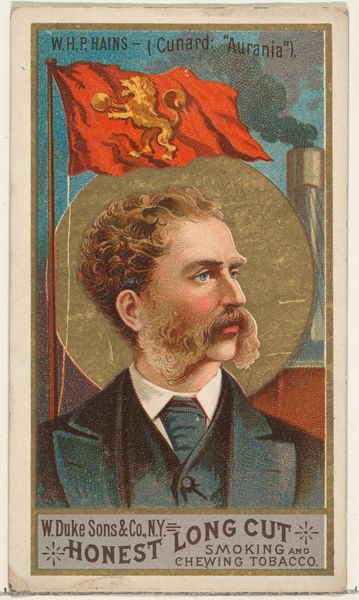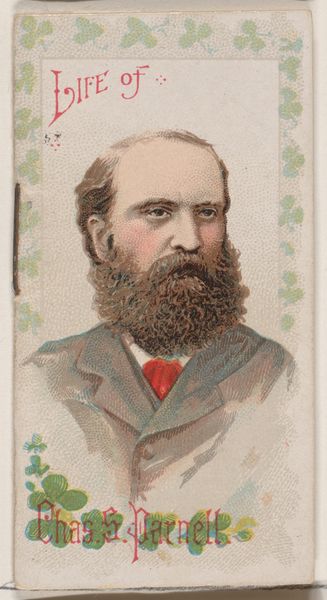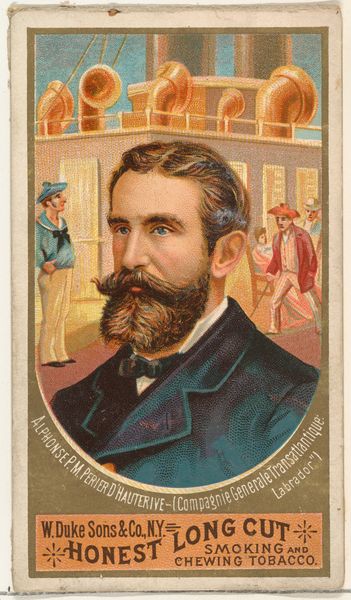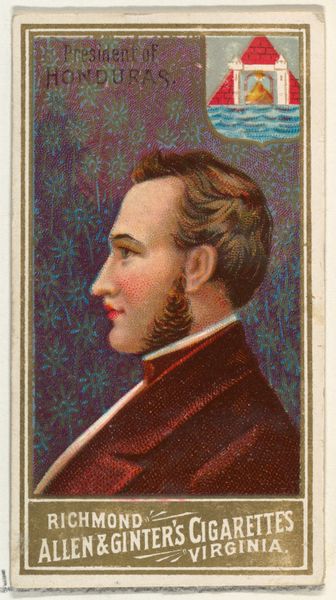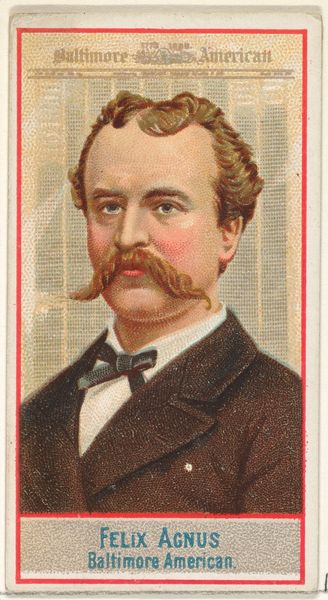
James Sumner, from the Sea Captains series (N127) issued by Duke Sons & Co. to promote Honest Long Cut Tobacco 1887
0:00
0:00
drawing, print
#
portrait
#
drawing
# print
#
caricature
#
oil painting
#
portrait reference
#
coffee painting
#
men
#
portrait drawing
#
watercolour illustration
#
portrait art
#
watercolor
#
fine art portrait
#
celebrity portrait
Dimensions: Sheet: 4 3/16 × 2 7/16 in. (10.7 × 6.2 cm)
Copyright: Public Domain
Editor: This is "James Sumner, from the Sea Captains series" created around 1887 by W. Duke, Sons & Co. It's a print, originally intended as a promotional item for tobacco. There’s a certain…stiffness to it, and I can't decide if it's charming or unsettling. What stands out to you? Curator: What strikes me is the inherent tension within this seemingly straightforward portrait. It's an advertisement, designed to appeal to a specific demographic. Who were they trying to reach, and what values were they associating with tobacco consumption by depicting this individual? Consider the backdrop, too. Sumner is positioned against a somewhat romanticized vision of seafaring. What does that contrast reveal about 19th-century aspirations and class structures? Editor: So it's less about Captain Sumner as an individual, and more about what he *represents* in the context of consumer culture at the time? Curator: Precisely! His identity is being carefully constructed, or rather co-opted, to sell a product. And note his ethnicity. It prompts an immediate question about power dynamics, doesn’t it? Whose stories get told and circulated and how are they used, sometimes exploited, for capital gain? Are those stories authentic? It challenges us to question what exactly we are consuming. Editor: It’s unsettling to realize how much ideology can be packed into a tiny advertisement like this. I never considered all those layers before! Curator: Exactly! By interrogating seemingly simple images, we can unpack broader cultural assumptions about identity, race, and consumerism. How can you apply that knowledge moving forward? Editor: This makes me think about how advertisements haven't changed that much since the 1880's... We're still dissecting the surface to understand deeper societal meanings.
Comments
No comments
Be the first to comment and join the conversation on the ultimate creative platform.
